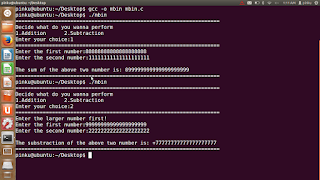To block any website, on every browser, you need to edit the hosts file. A hosts file is a local file stored on the computer that translates domain names or NetBIOS names into an IP addresses. For example, in the example below, the line translates 69.72.169.241 into the Computer Hope domain.
Follow the steps bellow..
Step 1: Open the file "hosts" with Notepad.
Go to Start-->All Programs-->Accessories then run the Notepad as Administrator
Click on File then click Open on left corner of the Notepad and open the Hosts file.
Copy and paste the link bellow directly in File name: C:\Windows\System32\drivers\etc\hostsNow the hosts file is open.
Step 2: Add the website to the host file which you want to block.
Scroll to the empty space at the bottom of the file. There will be a lot of code and text, but you don't have to touch any of it. Instead, scroll all the way down to the bottom, where the last line should be something resembling "127.0.0.1 localhost". Do not edit or change anything as you're working. This file is essential to internet connections, and all you need to do add a few lines at the bottom to block websites. Start your new line right underneath the last "localhost" line and add the following lines (replacing xxx.com with the site you want to block)
Step 3: Save the hosts file.
Click on the File menu and click Save. Close the file. The site should be blocked in all web browsers and now instead of trying to access that site the computer will redirect you to the localhost.
If you like what you read.. share your thoughts in the comment box bellow. |Thanks|
Follow the steps bellow..
Step 1: Open the file "hosts" with Notepad.
Go to Start-->All Programs-->Accessories then run the Notepad as Administrator
Click on File then click Open on left corner of the Notepad and open the Hosts file.
Copy and paste the link bellow directly in File name: C:\Windows\System32\drivers\etc\hostsNow the hosts file is open.
Step 2: Add the website to the host file which you want to block.
Scroll to the empty space at the bottom of the file. There will be a lot of code and text, but you don't have to touch any of it. Instead, scroll all the way down to the bottom, where the last line should be something resembling "127.0.0.1 localhost". Do not edit or change anything as you're working. This file is essential to internet connections, and all you need to do add a few lines at the bottom to block websites. Start your new line right underneath the last "localhost" line and add the following lines (replacing xxx.com with the site you want to block)
127.0.0.1 www.xxx.com
127.0.0.1 www.yyy.com
Block websites by writing "127.0.0.1," followed by the website URL. At the beginning of the line, write 127.0.0.1, hit the space bar, and then write out the URL of the website. For example, to block yahoo, you'd write "127.0.0.1 www.yahoo.com." Do not add the "http://" to the website URL, or it will fail to block.Step 3: Save the hosts file.
Click on the File menu and click Save. Close the file. The site should be blocked in all web browsers and now instead of trying to access that site the computer will redirect you to the localhost.
If you like what you read.. share your thoughts in the comment box bellow. |Thanks|






